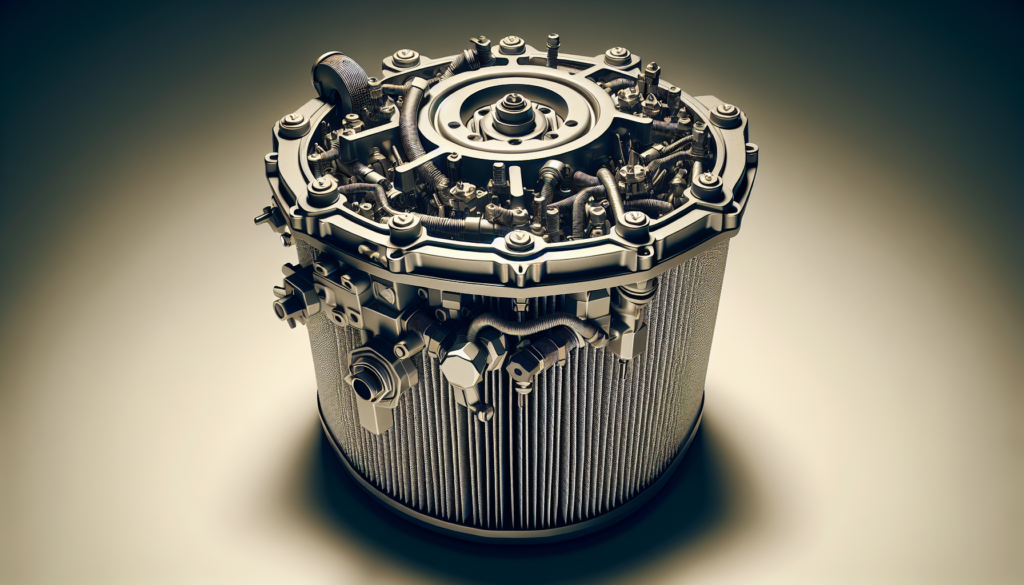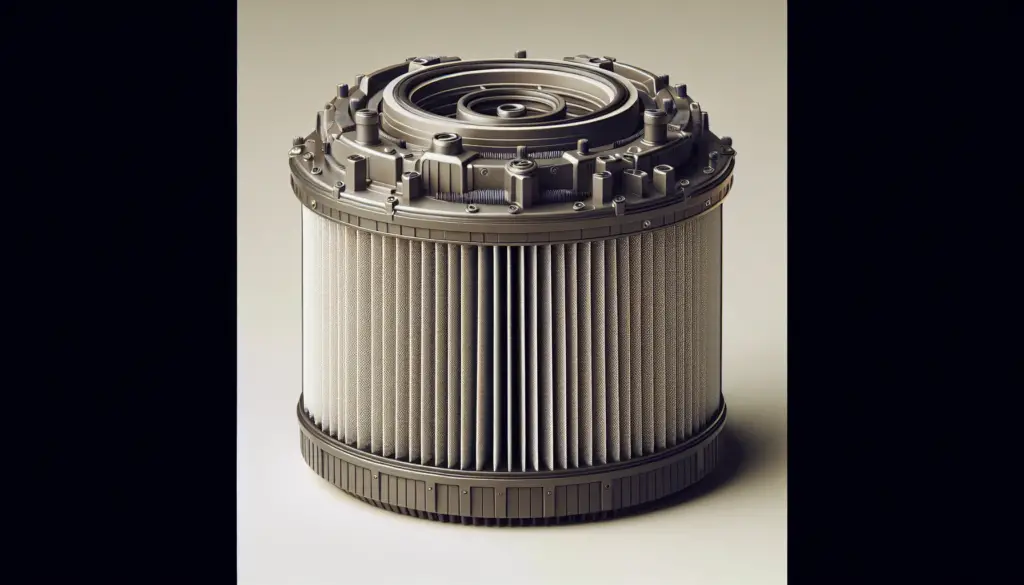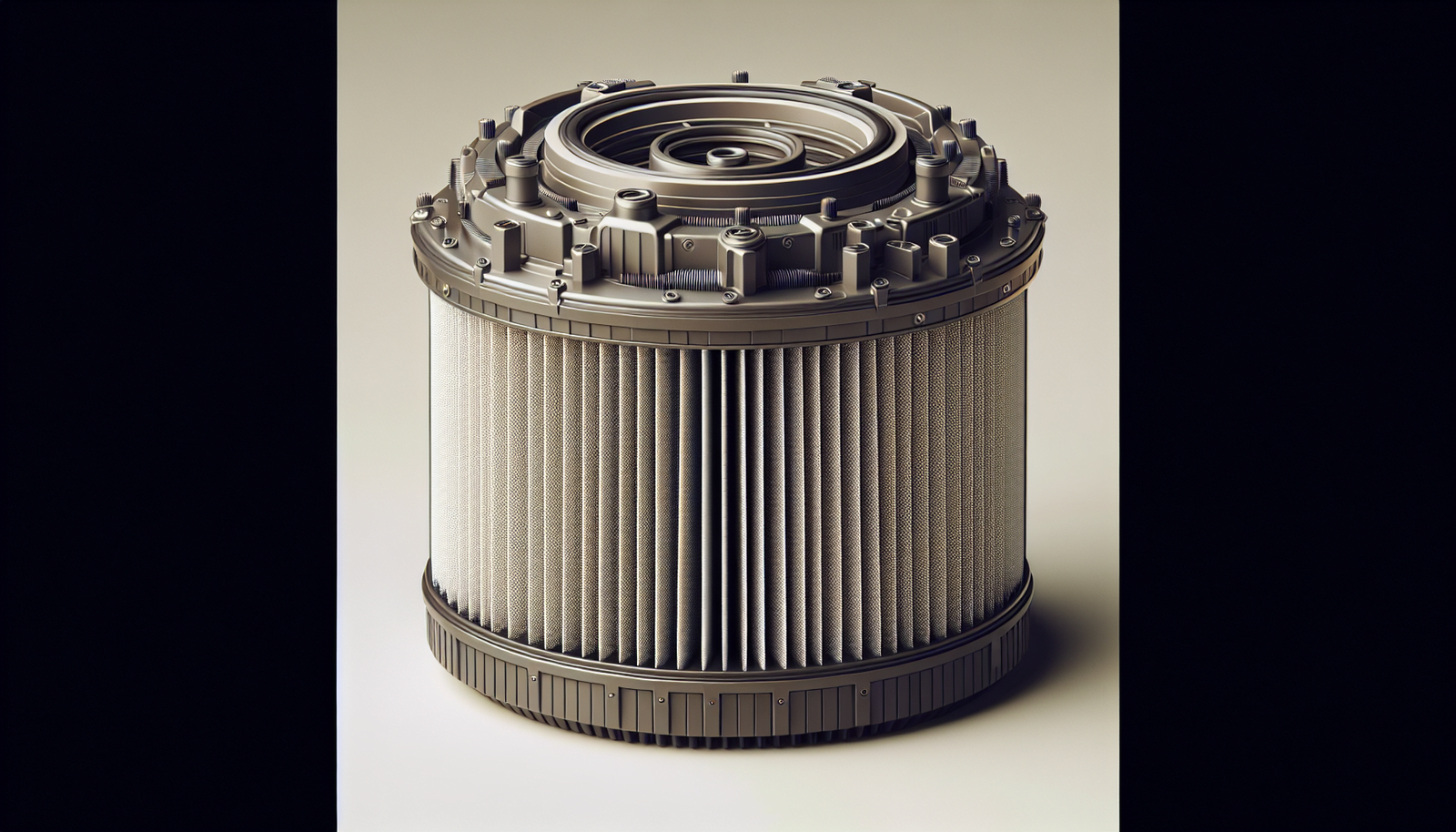Do you know all there is to know about maintaining boat engine filters? You might think so, but this article challenges your assumptions, breaking down those pervasive myths that could be compromising your watercraft’s performance. Equip yourself with real, expert knowledge on how to properly maintain your engine filter, separating facts from fiction, and prevent the hit-and-miss approach that’s been leaving your boat lagging behind. “Common Myths About Maintaining Boat Engine Filters Debunked” is here to clear up any misconceptions you might be harboring. So, prepare yourself to set sail on a sea of newfound clarity and enhanced understanding.

Myth 1: Boat Engine Filters Do not Require Regular Maintenance
When it comes to sinking or floating (both figuratively and literally speaking), regular maintenance of your boat’s engine filters can make all the difference. While some may suggest otherwise, engine filters are not a “fit and forget” element of your boat.
Importance of regular maintenance
Maintaining your boat engine filters is not just about keeping things ticking over nicely. It’s about protecting your engine from significant damage that can occur over time. Picture the filter as a bodyguard for your engine — keeping out unwanted contaminants and ensuring everything operates smoothly.
Frequency of filter maintenance
Just how regular is regular enough when it comes to filter maintenance? Well, part of it depends on how frequently you use your boat. As a rule of thumb, you should inspect and clean or replace the filters every time you change the oil. As for the exact frequency, look no further than your boat manufacturer’s manual that will guide you with specific guidelines.
Potential damage without regular maintenance
Skipping regular maintenance might save you some time in the short run, but it could cost you a lot more later. From reduced performance to system failure, the sticky stuff that bypasses a poorly-maintained or defective filter can cause serious damage to your engine. So, remember, a small amount of maintenance now can prevent a huge repair bill down the line.
Myth 2: All Boat Engine Filters Are the Same
All engine filters are not created equal. While they all serve the same basic purpose, the differences in their design, materials, and construction can affect their performance and longevity.
Different types of engine filters
Your boat probably needs multiple different filters. Fuel filters, oil filters, and air filters all play different roles to ensure your boat’s engine runs smoothly. Each of these filters has a different function and therefore requires different maintenance.
Choosing the right filter for your boat
Picking the right filter for your boat is crucial. The ideal filter should not only fit your engine but also be suitable for how you use your boat. Factors such as the type of water you usually navigate (fresh or salt water), and whether your activities are more relaxing or intensive can affect your choice.
Understanding the differences in quality
Not every filter on the shelf is worthy of your boat. Some filters are more durable and equipped with better materials to capture contaminants more effectively. Don’t just look at the price tag; instead, research and read reviews to find the best quality filter for your needs.
Myth 3: Engine Filters Can Be Cleaned and Reused Indefinitely
While it might sound economical and environmentally friendly to clean and reuse your boat’s engine filters indefinitely, it’s not recommended or practical. Filters are designed to trap and hold contaminants, and over time these materials become lodged in the filter itself.
Reasons for filter replacement
A cleaned filter will never be as efficient as a new one. Moreover, every cleaning operation carries the risk of damaging the filter – a situation that could lead to serious engine problems if the filter fails to do its job properly.
Signs that a filter needs to be replaced
Sometimes, visual inspection alone is not enough to determine if a filter needs replacement. Other signs to look out for include reduced engine performance, unusual engine noise, or even a warning light on your dashboard.
Dangers of reusing a filter indefinitely
By reusing a filter indefinitely, you’re effectively allowing more contaminants into your engine. Over time, this could lead to harmful engine wear, shortened engine life, and higher repair costs.
Myth 4: Expensive Filters Are Always the Best Choice
While you certainly get what you pay for in many cases, it’s not always true when it comes to boat engine filters. It’s important to focus on the specific needs of your engine and the conditions in which you run your boat.
Understanding the value versus cost factor
Some filters are indeed worth the higher price tag because they offer unique features like longer lifespan or better filtration performance. However, always assess each option for its cost vs. value ratio, and don’t automatically reach for the most expensive one.
Expensive doesn’t always mean quality
As with anything, brand names and marketing can influence the price of a filter. But, an expensive filter is not always synonymous with quality. Always look for independently reviewed products or those recommended by trustworthy sources.
Importance of filter specifications over price
You need a filter that’s built for the job it will perform. Be sure to comparison shop, not just by price but by measurements, compatibility, and specifications. It’s about finding the right filter for your engine, not the most expensive one.

Myth 5: The Boat’s Performance is Not Affected by the Engine Filter
Contrary to some beliefs, the engine filter’s condition significantly affects your boat’s performance. If it’s full or clogged, the boat’s performance will be restricted.
Role of the filter in engine performance
Filters play a crucial role in maintaining your boat’s engine performance. They are responsible for keeping different engine compartments free of dirt, grime, dust, and other harmful contaminants to ensure optimal operation.
How a clogged filter affects boat operation
A clogged filter compromises the efficiency of the engine since it cannot allow the same volume of fluid (oil, fuel, or air) to pass through and keep the engine running optimally. This can lead to reduced power, inefficiency, and potential engine breakdown.
Increasing performance and efficiency with proper maintenance
By regularly replacing or cleaning your filters (as recommended by the manufacturer), you can enhance your boat’s performance and fuel efficiency while also extending the life of your engine.
Myth 6: Bigger Filters Are Always Better
Bigger isn’t always better when it comes to boat engine filters. Understanding the correct filter size for your engine is vital for its health and longevity.
Importance of filter size
The right filter size ensures that the filtration process operates at optimal capacity, enabling your engine to function properly. Meanwhile, the wrong size can lead to inefficiencies and potential engine damage.
Drawbacks of oversized filters
Oversized filters can pose several issues. The worrying part is not just the unnecessary extra bulk, but rather what’s not happening inside these larger filters. They might seem more efficient at face value, but it’s more about the fit and the sail conditions than the size.
Choosing the right size for your engine
To find the perfect engine filter size, refer to your engine’s user manual or ask a professional. Using the wrong filter size can lead to many problems, from minor inconveniences like reduced efficiency to major issues such as engine failure.
Myth 7: Filters Should Only Be Changed When They are Dirty
Like changing your underwear, filters should be replaced regularly, whether they’re visually dirty or not. As filters trap more and more particles, they become less effective, even if they don’t visibly look dirty.
Reasons to change filters regularly, not just when dirty
Filters may seem clean on the outside, but the harmful particles they trap inside can piling up and decrease their efficacy over time. So, even if the filter isn’t dirty on the outside, it might be worn out inside.
Impact of dirty filters on engine
Dirty filters can lead to poor engine performance and can cause irreversible damage. Since a dirty filter has reduced efficacy, it lets more and more contaminants pass through, causing wear and tear on your engine.
How to determine if a filter needs changing
Aside from visual checks, you can also use your boat’s performance as a guide. Reduced speed, power, or fuel efficiency could be indicators that it’s time to change your filter. Furthermore, your engine’s user manual will provide guidelines on how often to replace the filters.
Myth 8: A Boat Engine Can Run Without a Filter
While technically possible, running a boat engine without a filter is like inviting trouble over for dinner. Filters are an essential part of your engine and are crucial for maintaining its longevity and performance.
Purpose of engine filters
Engine filters protect the engine from harmful contaminants that could quickly damage its parts and decrease its lifespan. Without them, your engine is exposed to accelerating wear and tear, which could lead to engine failure in the long run.
Potential damages without a filter
Running an engine without a filter risks serious, potentially irreversible damage. This can include blocked passages, faulty seals, and worn parts, all leading to engine failure.
Importance of always having a working filter in place
Always ensure that your engine has a clean, well-functioning filter in place. It protects your engine, enhances performance, and helps prevent unnecessary maintenance costs.
Myth 9: You Can Use Any Liquid to Clean Your Filters
Using just any liquid to clean your filters can end up causing more harm than good. There are specific cleaning solutions designed for different types of engine filters, so it’s important to use those.
Correct cleaning solutions for filters
Specific cleaning solutions are designed to gently break down the contaminants without damaging the filter itself. Using the wrong solution can end up damaging the filter or leaving harmful residues that can affect performance.
Danger of incorrect cleaning solutions
Using abrasive or harsh cleaning solutions can cause damage to the filter material, rendering it ineffective. In the worst-case scenario, it can let harmful particles pass through the filter and get into the engine, causing immediate and costly damage.
Recommendations for maintaining clean filters
Keeping your filters clean is critical for the overall health of your boat’s engine. It’s best to follow the manufacturer’s recommendations on filter cleaning practices and what solutions to use. Factors such as the type of filter and its composition should inform your cleaning methods.
Myth 10: Changing the Filter is Enough to Ensure Effective Operation
While changing your filter regularly is crucial for optimal engine performance, it’s far from the only maintenance task necessary.
Additional maintenance tasks
There’s much more to maintaining your boat engine than just changing filters. Regular servicing, cleaning, oil changes, and inspections, among other tasks, are all critical for keeping your boat running smoothly and efficiently.
Importance of comprehensive engine care
Comprehensive care for your engine entails maintaining every portion of the engine that needs attention. Ignoring other tasks while only focusing on filters can lead to sub-optimal performance and, ultimately, engine breakdown.
How overall maintenance impacts filter efficiency
All parts of your engine work together. If other components are not maintained correctly, even a new filter won’t help your engine run optimally. In the big picture, everything counts when it comes to achieving efficient engine operation.
In a nutshell, maintaining your boat’s engine filters is essential for maintaining your engine’s performance and longevity. Busting these common myths is the first step towards better boat maintenance. Whether you’re a seasoned skipper or a novice navigator, understanding the truths about boat engine filters can make all the difference. Had a myth debunked today? Your boat probably thanks you for it!

